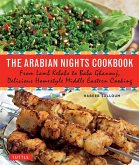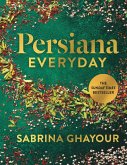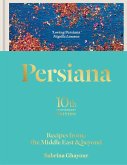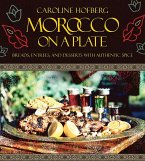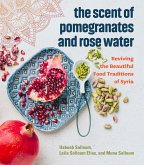Which dessert is named after the heroic third-century Queen Zenobia of Palmyra? Which luscious rice pudding shares its name with the eighth-century Abbasid Caliph al-Ma'mun? How does one make the perfect Baqlawah? Blending cookery with culture and recipes with history, this is the fascinating and delectable story of traditional Arab sweets. The authors here take us on a culinary journey across Iraq, Syria, Egypt and al-Andalus, presenting readers with clear and easy-to-recreate recipes from across the medieval Arab world. Filling the tables of caliphs and noblemen, these sumptuous desserts of saffron and rose water conjure the opulence and grandeur of the medieval Islamic world. Bringing together tenth- to fourteenth-century Arabic texts, the authors retrace the history of these sweet dishes, reviving the original recipes and following their development and influence over the centuries into non-Arabic speaking lands. Honey, dates, figs and pomegranates are just a few ingredients featured in this exquisite selection of mouth-watering desserts which have been modernised for cooks to try at home, all woven together with medieval poems and stories.
From delicious pastries, filled with pistachios and fragrant syrups, to luscious puddings, biscuits, and pies, it is the ideal addition to any kitchen. A unique insight into Middle Eastern culinary history, this book is a must-have for anyone with a sweet tooth.
From delicious pastries, filled with pistachios and fragrant syrups, to luscious puddings, biscuits, and pies, it is the ideal addition to any kitchen. A unique insight into Middle Eastern culinary history, this book is a must-have for anyone with a sweet tooth.



